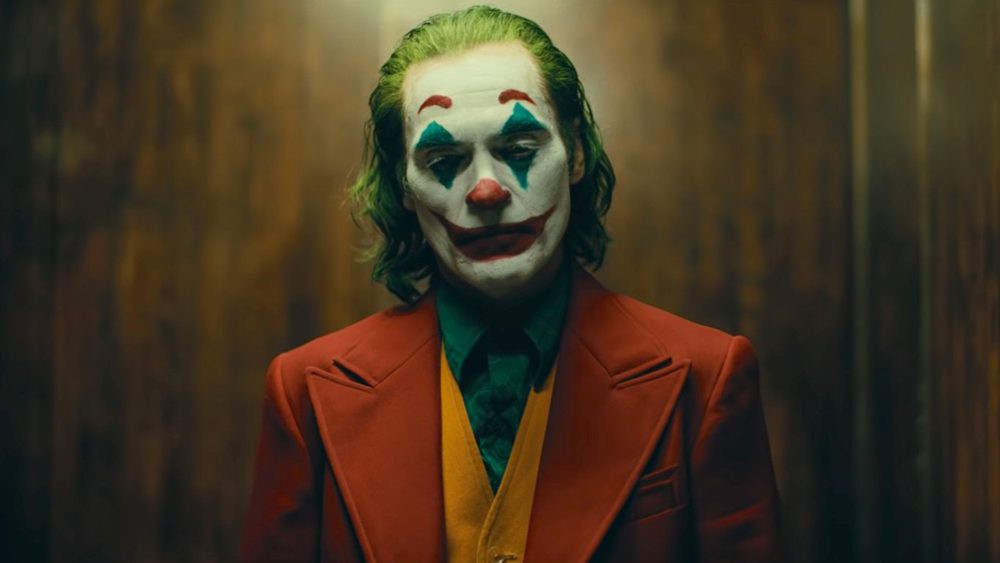The Golden Globes: First Out of the Gate
By • January 6, 2020 0 773

For weeks now, the threats and promises had been coming, steady as acid rain. Jan. 5 came and went, and, sure enough, what had been promised was fulfilled.
As a stream of commercials had warned, Ricky Gervais hosted the 77th annual Golden Globe Awards. And yet, here we were, still awake and standing and not too much worse for all that, running a little late after 11 o’clock, only slightly splattered — as if by spilled champagne — by some of his more egregious jokes.
We shouldn’t blame Gervais for being there. It’s not like he was the reluctant bride of the evening, coming out of stale retirement. The decision to have him back — for “the last time,” or so he said — was made by the folks who run the Globes, a relatively small group of foreign and overseas media types who not only pick and choose nominees and winners and losers but, we must assume, hosts.
The Golden Globes kick off the silly season in the world of awards shows, the show business equivalent of the Iowa caucuses that open primary season. The show — a three-hours-plus television extravaganza, not counting the closely watched red-carpet segment — is the first full dress-up occasion for Hollywood stars to show their stuff (and complain about the results).
Most of the time, the Globes, apart from their first-out-of-the-starting-gate status, are a slightly offbeat bit of fun. They’re also unique in that, like some lottery games, there are lots of ways to win. The awards split off not only into film and television, but include categories that give rise to new examples of “your shoes don’t fit.” Is Quentin Tarantino’s “Once Upon a Time in Hollywood” a comedy? A dramedy? This kind of shoe-horning worked well for Madonna when she played the title role in the film version of “Evita” years ago.
Globe voters tend to go for the more cutting-edge or obscure entrants in the competition. Look at Renee Zellweger’s win for best actress in a film drama in “Judy,” as in Judy Garland, a film that, while praised, was seen by few people other than critics, scoring low at the box office. Zellweger is a fine actress, always has been, but perhaps popular interest in Judy Garland and her late-life troubles has finally ebbed.
On the other hand, it’s not difficult to account for Joaquin Phoenix and his big win in the title role of “Joker,” although there are some puzzling things about the film. “Joker” — yes, that Joker, but no, not exactly that Joker — pulled in huge box office receipts, here and all over the world, and Phoenix, a brilliant if sometimes inarticulate performer, was brilliant and inarticulate in the film, which was darker than a black oil well. The comic book reference no doubt helped, but it’s still hard to figure out the picture’s overall popularity.
Phoenix gave an emotional speech, much of it bleeped, that seemed to center around the rich and famous who should care more about the world and not run around in Palm Springs so much.
Just like last year, bio-pics of a more contemporary sort did well. Taron Egerton won best actor in a motion-picture comedy or musical for his portrayal of enduring rock-pop star Elton John in “Rocketman,” which made for a pretty real-life picture of Egerton and his subject sitting at a table together. Talk about life imitating art (or vice versa).
A notable surprise in the awards was “1917,” a lyrical, if that’s possible, World War I combat film directed by best director Sam Mendes of “American Beauty” fame. The film copped the best drama award.
And hello multi times to Phoebe Waller-Bridge, whose “Fleabag” was a big winner again. Maybe some of you who’ve never seen it will do so at last.
An interesting choice was Russell Crowe, who played Roger Ailes, the Fox News tycoon, in a nerve-wracking Showtime biopic. Crowe was not there; he was busy helping his countrymen battle the devastating fires in Australia, a subject that came up several times, what with the presence of Aussie stars like Nicole Kidman and Cate Blanchett, who runs a theater company in Sydney with her husband.
There was a lengthy and entertaining response from Ellen DeGeneres upon receiving a new award, the Carol Burnett Award, the equivalent of the Cecil B. DeMille Award won by Tom Hanks, both for lifetime achievement. DeGeneres did a great stand-up and Hanks battled a cold during his speech, which sounded like a podcast in the art of movie-making.
Brad Pitt was an obviously popular choice for playing an aging stunt man (with pal Leonardo DiCaprio) in “Once Upon a Time in Hollywood,” which won best musical-comedy and a writing award for Tarantino, who also directed.
Michelle Williams, who is expecting a child, won an acting award for “Fosse/Verdon” and chose to make a moving pro-choice speech.
In fact, there were lots of moving speeches — Patricia Arquette’s observation that there were a lot of other things going on in the world that might capture our attention, for instance, and Olivia Colman’s when she accepted a television acting award for playing Queen Elizabeth (II).
As for Gervais, well, for all the sturm-und-drang about his hosting, he managed to get off cheap and bleeped jokes about “Cats,” including one so inappropriate that it seemed to offend even him. His one sharp stab was a joke about the absence of nominations for women directors.
In the end, the Globes, while fun and sometimes surprising, were only the beginning, the starting shot, one might say, for the annual awards parade to follow.

